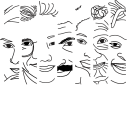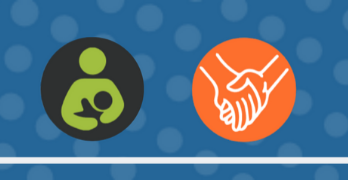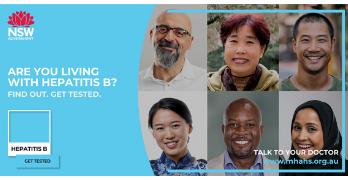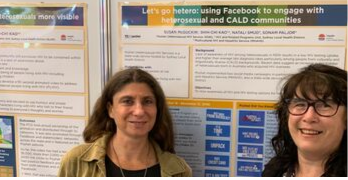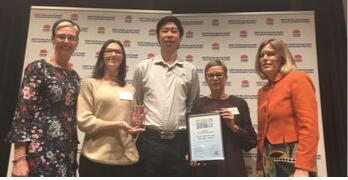The factsheets can be downloaded via https://pozhet.org.au/pozhet-print-resources/.
The factsheets can be downloaded via https://pozhet.org.au/pozhet-print-resources/.
The Multicultural HIV and Hepatitis Service (MHAHS) has launched a new, state-wide hepatitis B campaign.
Developed in partnership with the NSW Ministry of Health, the Are you living with hepatitis B? Find out. Get tested campaign promotes hepatitis B testing among Arabic-speaking, Chinese-speaking, Korean, sub-Saharan and Vietnamese communities, with a focus on the five metropolitan local health districts with the highest prevalence of hepatitis B.
The campaign will run throughout the 2020 calendar year and include four intensive multi-channel activations. These will involve the distribution of printed and digital campaign collateral, ethnic and social media promotions as well as multilingual website channels. The activations are planned for February, May, July and October. Community engagement activities will be ongoing throughout the year.
A multilingual resource toolkit, which includes the campaign resources and guidelines for use is available on the campaign webpage.
For more information about the campaign, please contact Natali Smud on 9515 1234 or email
Donatella Cifali, one of our Senior Social Workers, presented a paper titled Stigma, equity and choice: Decision making in the context of infant feeding by HIV-positive mothers discussing issues affecting women living with HIV. The paper was written in collaboration with Pozhet NSW.
"It was good to see issues affecting women discussed and taken seriously even though women constitute only about 10% of people living with HIV in Australia. There are particular issues that are unique to women and are worth raising as it affects the social and emotional wellbeing of women. Our paper looked at breast feeding in the context of the newly released National Breast Feeding Strategy and of various HIV and breastfeeding guidelines globally," Ms Donatela said.
In the developing world, HIV-positive women are told to avoid breast-feeding altogether, to give their infants the best chance of remaining HIV-negative. However in the developing world, where they often lack clean water and an affordable, reliable supply of infant food supplement, the World Health Organization recommends that HIV-positive mothers exclusively breast-feed their infants for the first six months.
"We emphasized that it is not a matter of whether women breast feed or not but more about how they are being informed. It's about service providers working in a partnership, not in a directive top down approach, but in a collaborative partnership to make sure all the available information is understood in an accessible format, that women are supported to make their own decisions based on the information at hand," said Ms Donatella.
The MHAHS also presented a poster with Pozhet NSW titled Let's go hetero: using Facebook to engage with heterosexual and CALD communities. The poster looked at a series of social media campaigns Pozhet NSW implemented with MHAHS which demonstrates how social media campaigns with simple culturally-inclusive messaging, are a cost effective way to reach priority populations in diverse communities.
For more information about MHAHS, visit www.mhahs.org.au or call 95151234.
“Hepatitis B: Could it be me?" is the first multilingual hepatitis B campaign to address the sensitive topic of hepatitis B from the perspectives of Arabic, Chinese, Korean, Vietnamese and sub-Saharan African communities. The project engaged various local health districts and community organisations and won in the Keeping People Healthy category. It provides an excellent example of best practice in reducing the long-term burden on the health care system by encouraging community members to get tested and seek appropriate treatment for hepatitis B so as to reduce incidence of liver disease and liver cancer.
Barbara Luisi, Director of the Diversity Programs and Strategy Hub said: “It is an honor to be recognised for this important work on which many communities collaborated. The award acknowledges our diversity and highlights how everybody, regardless of ethnic background or linguistic skills, should have access to healthcare information.”
The Multicultural Health Communication Awards are presented by the NSW Health Communication Service to celebrate excellence in multilingual health communication across NSW Health and health-funded non-government organisations.
To learn more, visit Hepatitis B: Could it be me? ASK. TEST. TREAT campaign page.
